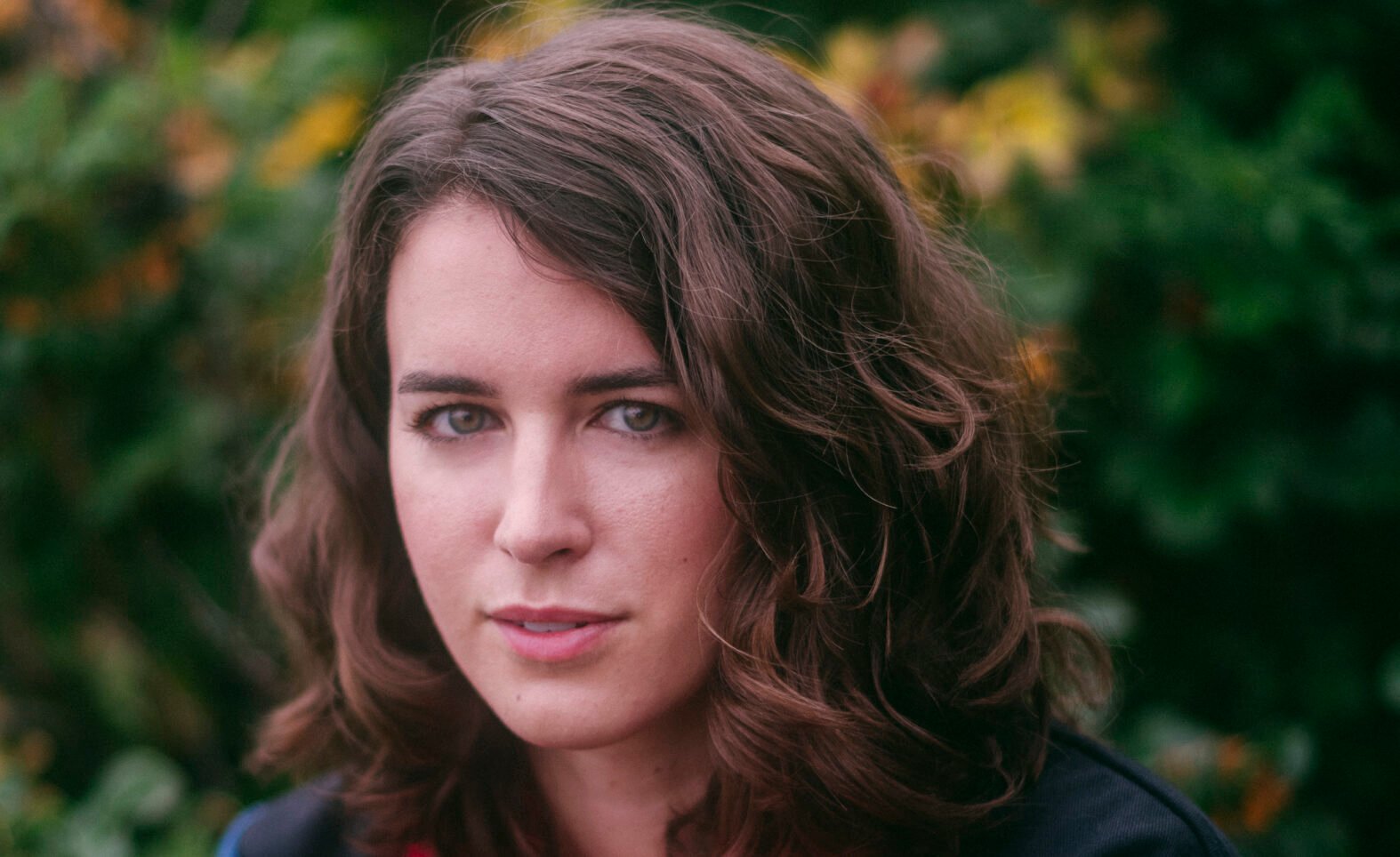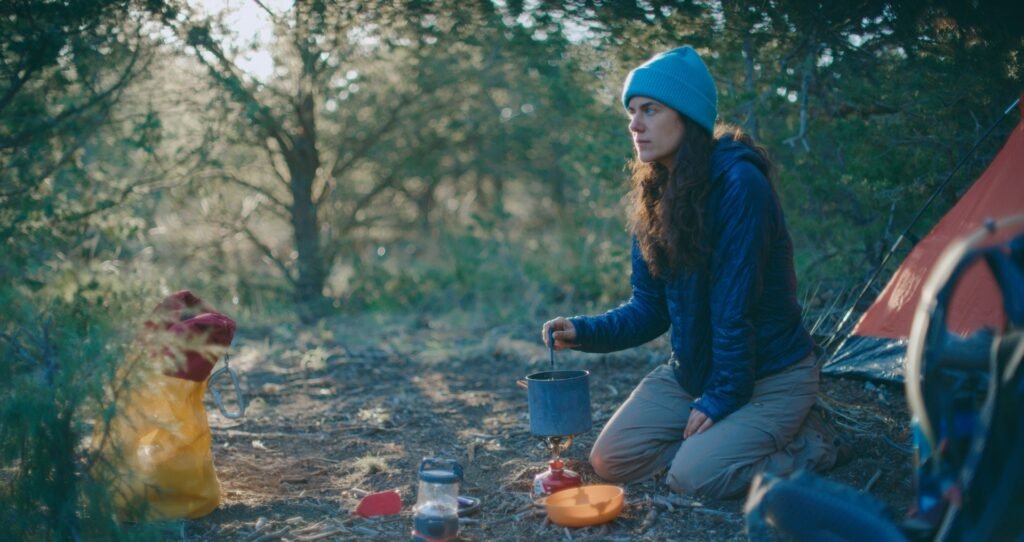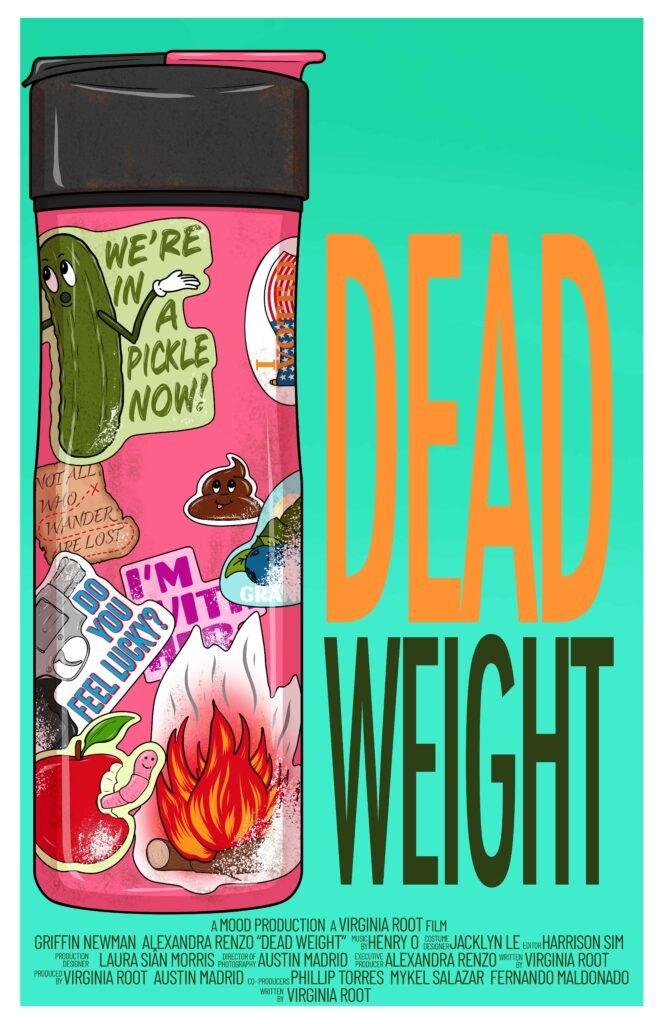In Conversation: Dalton Zongshian Lu Shares With Us His Vision and Passion for Authenticity in Film.
Most stories come alive by a magical touch and a lot ...

In ‘Dead Weight’, Virginia Root strips the post-apocalyptic genre of its spectacle to tell a story that is at once intimate and unsettlingly real. Root, a former actor turned filmmaker, brings a refreshing perspective shaped by her own lived experiences both personal and professional.
The 15-minute short, which premieres at the 2025 Dances With Films, began with a deceptively simple question for her. What if the world ended during the worst date of your life?
But beneath its clever premise lies a deeper exploration of gender dynamics, personal freedom, and the emotional toll of carrying “dead weight.”
In this conversation, Virginia opens up about crafting the film, the challenges of shooting in the wilderness, and the instincts that guide both her characters and her own creative journey.
Virginia: I am a born-and-raised Jersey girl living in Albuquerque, New Mexico. I spent the first part of my career as a performer in New York City. During my acting days, I slowly realized that while I loved making things (pilots, web series, sketch videos), being on camera was quickly becoming the least interesting part. I pivoted to directing by striking deals with actor friends – I would produce their projects if I could also direct. Dead Weight is special to me because it’s the first project I’ve written and directed.
Virginia: The very first seed for Dead Weight was the idea ‘What if the apocalypse happened while you were on the very worst date of your life?’ I spent plenty of time in my 20s single, going on terrible first dates, and was interested in exploring the tricky gender dynamics of delicately rejecting a man without eliciting an angry response. Layering the apocalypse on top raised the stakes to be overtly life or death, which, as any woman is too keenly aware of, can be the case in those dating scenarios.
Virginia: Definitely. Like I mentioned, the seed of the idea was inspired by dating experiences, but as the story evolved over the years, it became less tethered to my romantic life (happily married today) and more informed by my professional and creative pursuits. Grace, above all, wants to live on her own terms. I very much relate to the experience of being told what I have to do to succeed, and thinking, ‘nah, I’m not doing any of that.’ At times, perhaps to my own detriment, but mostly I’ve found that finding your own way is deeply rewarding despite any resistance you encounter.
Virginia: While Aaron is intellectually confident and guided by logic and rationality, Grace is a more intuitive thinker. She reasons things out in a way that makes perfect sense to her but is inscrutable to someone like Aaron. He’s equal parts baffled, annoyed, and enraged when she rejects him and his plan. I wanted to explore the consequences of her not going along with him. She doesn’t take the path of least resistance, and that inherently comes with risk.
Virginia: I always envisioned this story happening 100% outside. From a production standpoint, if the characters are deep in the wilderness, we never needed to set dress for the apocalypse, which freed us up considerably. I also liked it on the metaphorical level. Grace chooses to see the apocalypse as an opportunity to be free from the constraints of society, and that freedom is reflected back in both the beauty and brutality of nature.

Virginia: Ah, what a question. Honestly, not a whole lot. I’d shoot the scene of their first encounter with the bear bag differently, change up the angles, and the camera moves. But ask me again tomorrow and I’ll have an entirely different answer for you.
Virginia: We shot the final scene on Day 1. We were behind and losing light. Alexandra Renzo only had a few takes to nail the performance, and I was giving her notes fast and furious. Striking the right tone of surprise, fear, disgust then relief was crucial to me, and she managed to hit every single note and bring new texture to each take. I drove home that night knowing we had already had the hardest sequence in the can, and that gave me the confidence to sail through the rest of the shoot.
Virginia: I watched Michael Clayton a lot. The films couldn’t be more different, but I was inspired by the grounded performances. Tilda Swinton could have played her character as straight up evil, but instead grounded her in desperation. She makes you believe how a person in her position could be led down that road. I talked with Griffin about making sure Aaron felt like a real person, not a caricature. It would have been easy to play that role just for laughs, but Griffin layered in so much humanity and complexity.
Virginia: We discovered a lot of that in post. Henry O, our composer, found all of these organic sounds that helped to build the tension and unease crucial to the thriller genre.
Virginia: Oh man, I hope they’re wondering how Grace will fare now that she’s on her own again. What else awaits her in that post-apocalyptic wilderness?
Virginia: Next, I want to make a feature here in New Mexico. I’ve got some ideas cooking…
Virginia: Your script is the foundation of everything. Your movie can be technically perfect, but that doesn’t mean much if you don’t have a strong story to tell. Workshop your drafts. Do table reads. Ask for feedback. I wrote upwards of 10 drafts and asked for feedback from all my writer friends, and I was still tweaking right up until production. On the back end, I also workshopped the hell out of the cut. I hosted screenings and tracked feedback in a spreadsheet. What’s working? What’s unclear? We ended up reordering scenes in the edit that made the story 10x stronger. It can feel vulnerable to let people in on your process like that, but it makes the work better. Not every note you get will be a good one, but developing a strong filter for which notes to take and which to toss is a really important skill. Okay, getting off my soapbox now.

‘Dead Weight’ may be set in a crumbling world, but it speaks loudly to the choices we make in our own. Through the character Grace, Virginia Root offers a portrait of quiet defiance of choosing intuition over obligation, solitude over toxicity. As Virginia Root sets her sights on developing her first feature in New Mexico, she leaves behind not just a powerful short film, but a reminder that filmmaking, like survival, is often about trusting your gut, doing the hard thing, and knowing exactly when to drop the weight that no longer serves you. And this is definitely something we all can learn from.
In Conversation With Reina K., brings to you the kind of scoop that gives you a real insight into the mind, drive and craft of filmmakers from across the world.
Leave A Reply